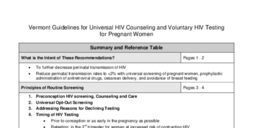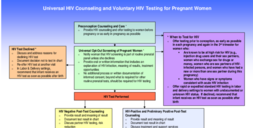
Although there is no cure for HIV, there are treatment options that can help people with the infection live long and productive lives. Patients who receive appropriate medical care and lower their viral loads (amount of HIV in their blood) are less likely to pass the virus on to their sex or needle-sharing partners. In this way, health care providers can play a key role to help reduce HIV transmission.
The Centers for Disease Control and Prevention (CDC) partners with the Health Department in addressing HIV in Vermont. CDC provides evidence-based guidance on a range of topics that can help health care professionals deliver quality HIV testing, treatment, and prevention services to their patients.
Vermont medical providers who are treating patients with HIV infection can consult with local specialists at the Comprehensive Care Clinics. The main office is located within the Infectious Disease Program at the UVM Medical Center.
The Health Department partners with local clinicians to provide lab testing and guidance on result reporting.



